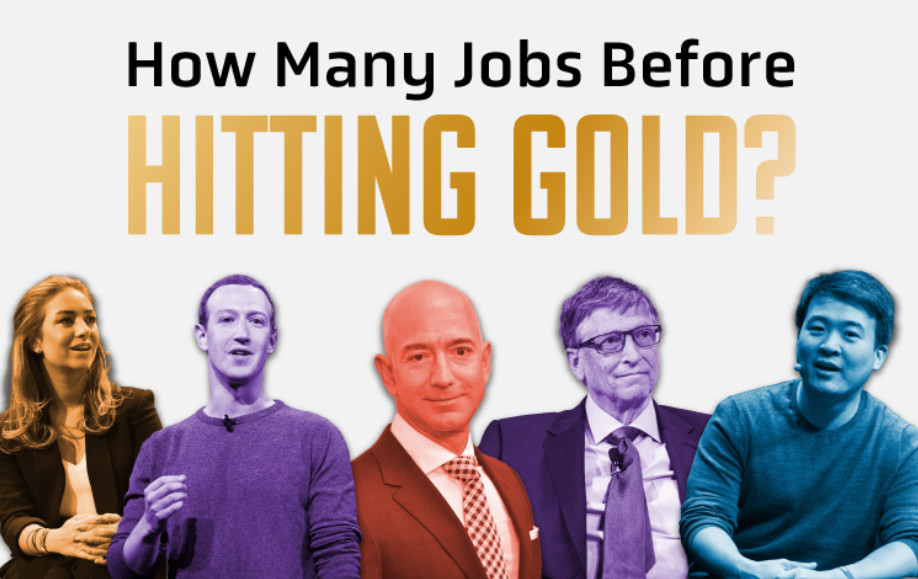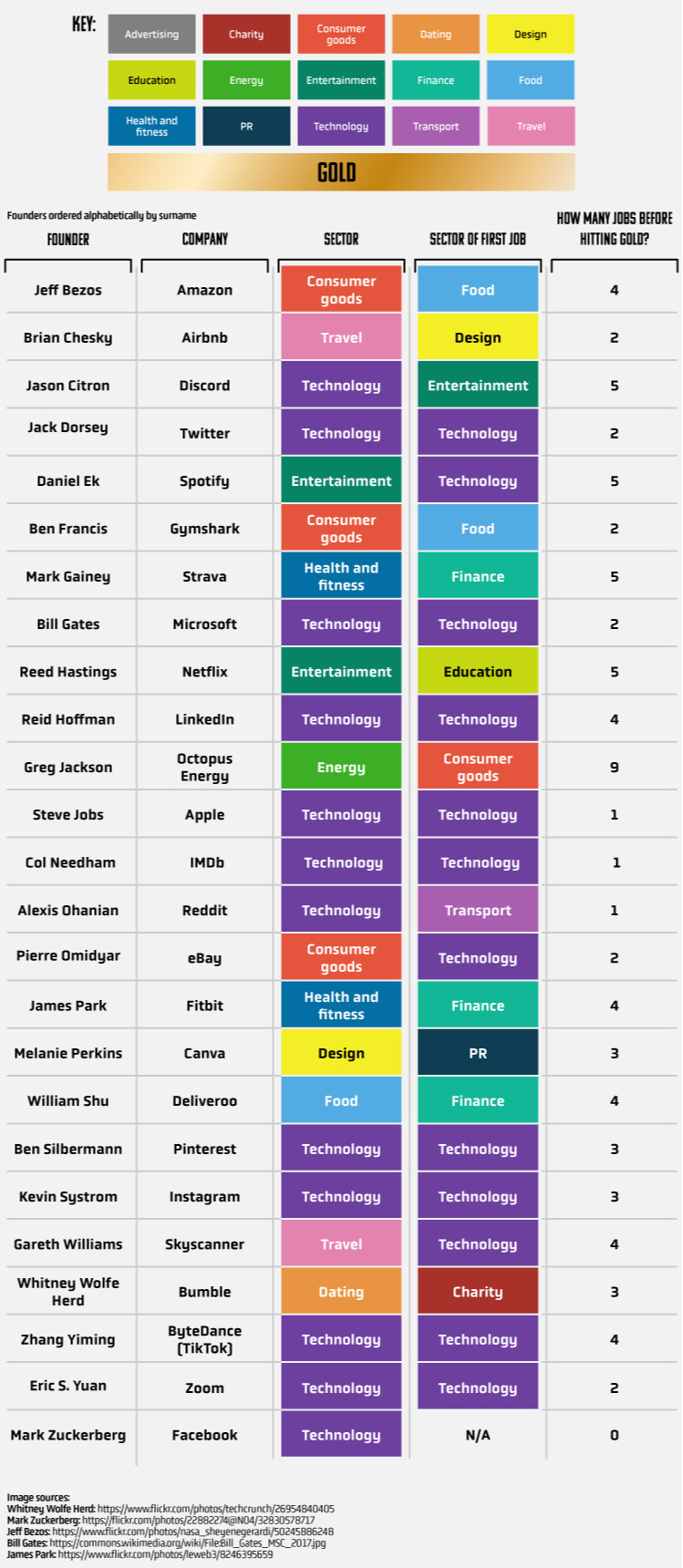How many jobs do you need before hitting gold?
By Bruntwood SciTech

While many believe the founders of the world’s most famous companies secured overnight success straight out of university, the reality is that it takes business leaders much longer – and involves a lot more graft – than simply stumbling upon a golden opportunity!
From working in McDonald’s to garage attendants, the road to success really is different for everybody. As Drew Houston, co-founder of Dropbox said, “Don’t worry about failure. You only have to be right once”.
So, how long did it take the globe’s biggest business leaders to discover their ‘once’? To find out, we’ve compiled a list of 25 of the worlds’ most successful tech businesses selected one founder from each, and researched their job history before they hit gold. We then collated our results to find the most common number of jobs and types of roles.
Continue reading, below, to find out the most popular career paths of the world’s most famous founders.
How many roles do you need to take before hitting gold?

According to our dataset, the average number of roles to have before starting a successful business is 3.2.
On our list, we see the likes of Whitney Wolfe Herd (Bumble), Kevin Systrom (Instagram) and Ben Silbermann (Pinterest) hit this golden number, with these famous founders working in minor roles at charities and tech companies before finding their own runaway success.
The majority of founders in our dataset, however, held two or four roles prior to starting their current companies. Jeff Bezos, for example, worked four roles at McDonald’s, Fitel, Banker’s Trust and D.E. Shaw & Co. before he struck gold with Amazon. Similarly, Zhang Yiming, founder of ByteDance (which would later birth TikTok), previously worked as a lowly engineer at Kuxon and Microsoft.
Our main takeaway from this data is that even the most famous founders did not achieve their success overnight. They needed to toil in the workplace and gain industry experience before striking out on their own. Take Greg Jackson of Octopus Energy, for example. He worked an impressive nine roles across consumer goods, technology and finance, before starting one of the fastest growing energy providers in the UK.
Of course, there are notable exceptions, but they are very much in the minority. Only 16% of founders on our list held one or fewer roles before starting their successful company, with Mark Zuckerberg (0 jobs) and Steve Jobs (1 job) the most famous of those few. For everyone else, experience is the key to success.
Where did famous founders start their careers?

Contrary to popular business belief, the majority of founders on our list (60%) began their career in a different sector to the company they would go on to start.
For instance, Reed Hastings, founder of Netflix, actually started his working life as a maths teacher, which is very far removed from Netflix’s current status as a titan of entertainment. The founder of Reddit, Alex Ohanian, also had similarly humble beginnings, working as a parking garage attendant in his youth.
Overall, however, the most common starting industry for our founders was technology, with 48% beginning their career in this sector. The typical trend is that founders move straight into these roles after graduating from university, but they rarely eclipse entry-level roles. Even Apple visionary Steve Jobs started working life as a low-level technician at Atari.
Finance was another notable starting industry for the founders on our list; 12% broke into roles in banks, trusts and finance firms. For example, William Shu (Deliveroo), James Park (Fitbit) and Mark Gainey (Strava) all got their start in the finance sector, which gave them the business know-how to drive their companies to fiscal success.
The bottom line
So, there you have it - there is no right or wrong way to start your career. Is there a 'best age' to start your own tech business, though?
From consumer goods to transport, the founders in our data set began their careers in a range of different sectors, not all relevant to their eventual goal. The most important factor was the experience they collated and then transferred to the running of their soon-to-be successful companies.
Think you’ve got what it takes to following the footsteps of these famous founders? Well, you’ll need a work space to match your ambition – and that’s where Bruntwood SciTech come in. Find the nearest science and tech facilities that can kickstart your company.